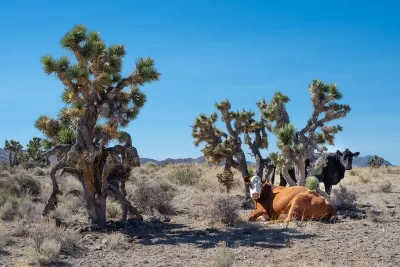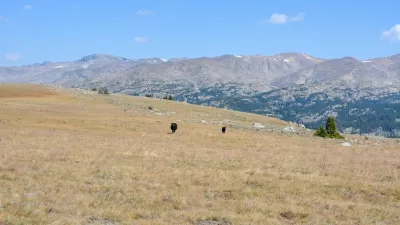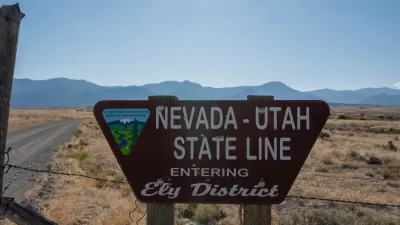Why is the agency’s effort to put conservation on an equal footing with other uses so controversial?

In an article for Outdoor Life, Andrew McKean explains how the WEST (Western Economic Security Today) Act, which narrowly passed the House of Representatives and is headed to the Senate, would nullify the Bureau of Land Management’s Conservation and Landscape Health rule.
The act was pushed through by Republican legislators who see recent efforts to regulate natural resources as government overreach. “In the case of the BLM rule, the agency proposes elevating conservation to the same land-management priority that traditional uses, such as grazing, mining, and energy development have had for decades.” The rule is opposed by conservative lawmakers and traditional BLM land users such as ranching interests.
Opponents criticize the rule’s new “conservation leasing” provision, which creates two mechanisms: “One is called ‘compensatory mitigation leasing’ which would enable BLM managers to require impacts of developments like solar farms and mines to be mitigated through habitat conservation measures on BLM land. ‘Restoration leasing’ would empower the agency to consider market-based solutions for measures that improve the ecological health of BLM land.”
According to one source, the rule doesn’t radically change what the agency can do or the tools available to it. “What the rule does is make the application of conservation tools more consistent and less scattershot.”
FULL STORY: Why Is the New BLM Rule So Controversial?

Planetizen Federal Action Tracker
A weekly monitor of how Trump’s orders and actions are impacting planners and planning in America.

Chicago’s Ghost Rails
Just beneath the surface of the modern city lie the remnants of its expansive early 20th-century streetcar system.

San Antonio and Austin are Fusing Into one Massive Megaregion
The region spanning the two central Texas cities is growing fast, posing challenges for local infrastructure and water supplies.

Since Zion's Shuttles Went Electric “The Smog is Gone”
Visitors to Zion National Park can enjoy the canyon via the nation’s first fully electric park shuttle system.

Trump Distributing DOT Safety Funds at 1/10 Rate of Biden
Funds for Safe Streets and other transportation safety and equity programs are being held up by administrative reviews and conflicts with the Trump administration’s priorities.

German Cities Subsidize Taxis for Women Amid Wave of Violence
Free or low-cost taxi rides can help women navigate cities more safely, but critics say the programs don't address the root causes of violence against women.
Urban Design for Planners 1: Software Tools
This six-course series explores essential urban design concepts using open source software and equips planners with the tools they need to participate fully in the urban design process.
Planning for Universal Design
Learn the tools for implementing Universal Design in planning regulations.
planning NEXT
Appalachian Highlands Housing Partners
Mpact (founded as Rail~Volution)
City of Camden Redevelopment Agency
City of Astoria
City of Portland
City of Laramie





























